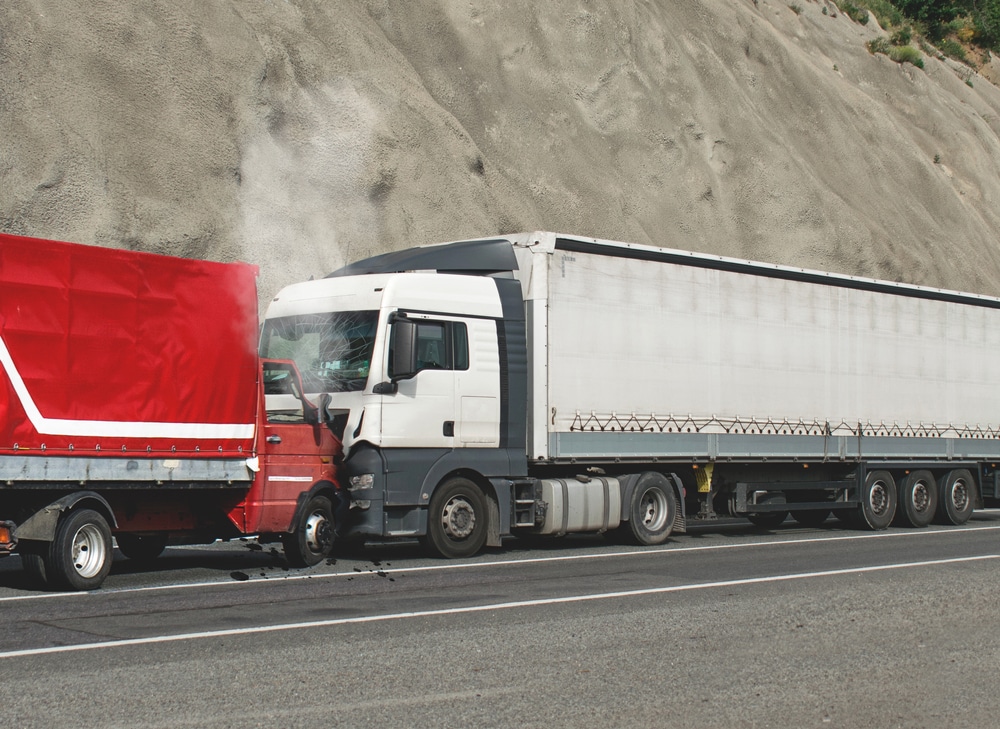Our construction accident lawyer in San Antonio, Texas, can get you the compensation you deserve after your accident. You pay no fees until we win.
Hear from Our Satisfied Clients
Areas in Greater San Antonio We Serve
Can You File a Construction Accident Claim in San Antonio If Your Employer Has Workers’ Compensation Insurance?
Workers’ compensation (workers’ comp) is a type of insurance many employers take out to cover medical expenses and wages when employees are injured at work. Workers’ compensation insurance is not mandatory in Texas, but your employer may have it to cover accidents at work.
You must check if your employer has workers’ compensation insurance after an accident at work, as it can affect your claim.
If your employer has workers’ comp, you can recover your medical expenses (such as treatment, surgery, hospitalization, and physical therapy) and a portion of your lost wages. You don’t need to prove your employer or any other party was reckless or negligent, but you cannot recover non-economic damages (compensation for pain and suffering, mental anguish, or other ways your injury has affected your life), and you typically won’t be able to file a personal injury claim if you receive workers’ compensation benefits.
However, there is an exception.
If a third party is liable for your injury, you may be able to recover a percentage of your wages and the cost of your medical bills via a workers’ comp claim AND file a personal injury claim for additional compensation.
Third parties that may be liable for your construction accident include:
- Equipment manufacturers: For example, if a tool or piece of equipment is defective.
- Construction site owners: If you are a contractor not directly employed by a construction site owner and they violate safety regulations or fail to monitor the work environment, you may be able to file a construction accident claim.
- Contractors or subcontractors: If contractors are brought in to perform certain job roles and they cause your injuries, you may be able to hold them responsible. An example might be a construction site cleaner who fails to leave out appropriate signage, resulting in you slipping and sustaining a spinal cord injury.
You can sue your employer if they do not have workers’ comp insurance, but you must show your employer was negligent or reckless and their conduct caused your injury. Examples of employer liability can include:
- Failing to provide adequate training or safety equipment
- Supplying faulty equipment
- Noticing a defect and intentionally ignoring it
- Learning about an unsafe work condition and failing to fix it within a reasonable timeframe.
Construction accident claims can be complex and you may be entitled to compensation even if you think you aren’t.
What If I’m Injured in a San Antonio Construction Accident as a Bystander?
Construction workers are particularly vulnerable to suffering an accident, but construction site accidents can also seriously injure or kill bystanders visiting a site or when construction work is carried out in a public area.
Common bystander injuries and accidents on construction sites include:
- Being struck by a vehicle.
- Ruptured eardrums from an explosion or dangerous noise levels.
- Slipping and falling on construction tools or other materials improperly stored or left unattended.
- Inhaling dust, smoke, fumes, and other hazardous materials.
- Being struck by falling pipes, tools, and other debris.
If you’re injured in an accident as a bystander, our construction accident lawyer in San Antonio can help you secure compensation.

San Antonio Construction Accident FAQs
Definitely. If a construction site accident injures you or a loved one, you should seek the expert advice of a construction accident lawyer in San Antonio. We can explain your legal options and help you better understand the circumstances surrounding your accident.
Even if you or a loved one is still seeking medical care and recovering from a workplace injury, we can begin investigating your incident and gathering more information about what actually happened. We can also connect with the Occupational Safety and Health Administration (OSHA) and other state authorities to obtain copies of the official reports prepared during their investigations.
If your employer has workers’ compensation insurance but a third party was negligent, it’s highly recommended you seek legal support. A personal injury claim has a much higher burden of proof compared to the workers’ comp claim filed by your employer, and securing evidence to support your claim is crucial.
If your employer does not have workers’ compensation insurance and you wish to sue, an attorney can assist with preparing and filing a complaint in court. It is possible that after filing a complaint, The responsible party may prefer to settle after you file a complaint to avoid a lengthy and costly court battle, especially if you have a strong case. Your San Antonio personal injury attorney can negotiate a fair settlement agreement that fully compensates you for your past and future expenses.
OSHA enforces specific guidelines to protect construction site workers, including installing proper railings on large equipment, visibly marking unsafe conditions, and implementing strict welding and electrical procedures. It is the employer’s responsibility to ensure the construction site complies with OSHA’s requirements.
Employers must also adequately train construction workers on how to use equipment and notify workers about unsafe conditions. Sadly, many employers are negligent and do not strictly adhere to these rules. This places construction workers at a greater risk of injury.
There are many causes of construction site accidents, from faulty equipment and crane or truck accidents to faulty or missing safety equipment.
OSHA reports that the four leading causes of construction site accidents are:
- Falls: Construction workers frequently use ladders and scaffolding to work in elevated construction areas. Falling from a ladder or an elevated area can cause severe injury or even be fatal.
- Struck by an object: Equipment and hazardous materials are common sights on a construction site — and they can be extremely dangerous. Falling debris can fatally injure construction workers, while motor vehicles such as cranes or transportation trucks can strike employees, contractors, and visitors.
- Electrocutions: In addition to construction equipment and hazardous materials, construction sites also frequently contain exposed wiring, outlets, and even circuit grids. Exposed electrical wiring that gets wet can gravely injure construction workers, while poorly maintained extension cords and power tools can electrocute construction workers, causing injury or death.
- Caught-in or caught-between: Trench or excavation collapses, and moving or rotating equipment that catches a worker can fatally injure construction workers.
Hazmat incidents, such as spills, leaks, explosions, or fires that release hazardous materials into the environment, pose a dangerous threat to health and safety. Hazardous materials can include:
- Flammable liquids (gasoline, propane, and alcohol, etc.)
- Explosives (dynamite and fireworks)
- Corrosive substances (such as sulphuric acid)
- Toxic chemicals and substances (e.g. pesticides, heavy metals, lead, and asbestos)
- Radioactive materials (e,g, uranium)
- Biological agents (including bacteria and viruses).
Various federal agencies classify and regulate hazardous materials and their safe use, including the Environmental Protection Agency (EPA), the Occupational Safety and Health Administration (OSHA), and the Department of Transportation (DOT). While mechanical failures and natural disasters can lead to the uncontrolled release of hazardous materials, hazmat incidents are primarily caused by human error, including inaccurate labeling and improper handling, storage, and transportation.
Workplaces must implement a hazard communication program to comply with regulations and mitigate the risk of a hazmat incident. This program must comprise five elements:
- A written plan documenting how hazard communication is implemented.
- An inventory listing all chemical hazards in the work environment.
- Providing safety data sheets (SDS) — readily accessible information detailing the properties and effects of each chemical and the required safety precautions to take.
- Properly labeling containers with the name of the chemical, manufacturer details, and the appropriate hazard warnings.
- Training employees on the proper handling, storage, and transportation of materials and the danger hazardous chemicals pose.
In the event of a hazmat spill, employers must evacuate the area and follow appropriate emergency procedures.
There are several ways employers and other parties can be negligent and liable for any injuries or illnesses that result from a hazmat spill.
These can include:
- An employer failing to implement a hazard communication program to warn employees of risks or train workers on proper handling techniques.
- A chemical manufacturer mislabeling chemicals.
- An employer failing to follow procedure after a hazardous material spill, causing further exposure.
- An employer failing to provide adequate personal protective equipment (PPE).
- An employer failing to signpost control zones, leading to additional exposure; these are:
- Hot (exclusion) zone: The area surrounding the incident where contamination is present or suspected. Workers must have PPE if in this area.
- Warm (contamination-reduction) zone: Where decontamination occurs, creating a buffer between the hot and cold zones.
- Cold (support) zone: The area outside of the warm zone. This area is considered safe and free from contamination.
Whether your construction accident was caused by one of OSHA’s so-called Fatal Four or a hazmat incident, our San Antonio construction accident lawyer can help you explore your options for recovering the compensation you deserve.
OSHA also cites workplace safety violations as a primary cause of fatal and non-fatal workplace accidents. These include:
- Failure to implement fall protection
- Unsafe scaffolding
- Failure to communicate potential hazards
- Failure to control hazardous energy (lockout and/or tagout violations)
- Insufficient respiratory protection
- Unsafe ladders
- Powered industrial truck safety violations
- Inadequate fall protection training
- Dangerous machinery and insufficient machine guarding
- Deficient eye and face protection.
If you are injured in a construction accident, you should immediately report the incident to your supervisor. If your employer has workers’ compensation insurance, they must report the accident to the Texas Workers’ Compensation Commission.
You should also seek medical care as soon as possible after your accident, even if you feel fine, as you are entitled to recover the cost of any medical treatment you may need. Your medical records can also help prove the severity of your pain and suffering, which you are entitled to in a personal injury claim.
Personal injury compensation (or damages) falls into several categories. If you are hurt in a construction accident, our personal injury attorneys can recover compensation for:
- Past and future medical bills and expenses
- Lost wages
- Future lost income
- Pain and suffering
- Loss of companionship
- Loss of consortium
- Loss of enjoyment
- Mental anguish.
The best way to find out how much compensation you might receive is to contact our San Antonio construction accident lawyers. However, for a ballpark figure, you can use our Texas personal injury calculator.
In most construction accident cases, there are two potential legal options available.
File a Workers’ Compensation Claim
Workers’ compensation is a type of insurance that provides benefits to employees who experience work-related injuries or illnesses.
Unlike in all other states, workers’ compensation insurance is not mandatory in Texas for private employers, but many choose to take a policy for the protection it requires; otherwise, if the employer was negligent, they may be liable for substantial compensation in a personal injury claim. For Texas’s worker’s compensation statute to cover your injury, the injury or illness must have been “sustained in the course and scope of employment.”
In other words, you must have been injured while working on the job. The workers’ compensation statute covers most physical injuries, such as broken bones and burns. Typically, workers’ comp will not cover injuries from an employee’s willful criminal acts or alcohol or drug use.
Under Texas’s workers’ compensation statute, employees can recover the following benefits:
- Income benefits (or wage-loss benefits): These benefits are equal to a percentage of the average weekly wages that an employee loses because of temporary or permanent illness or injury. Workers’ compensation insurance programs calculate the wage-loss benefits based on an employee’s injury or illness and how much time they have missed work due to the injury or illness. The workers’ compensation statute caps the total amount of wage-loss benefits.
- Medical benefits: These benefits cover the necessary medical care required to treat an employee’s work-related injury or illness.
- Rehabilitation benefits: These benefits cover expenses connected with an employee finding alternative employment.
- Death benefits: These benefits are equal to 75 percent of an employee’s average weekly wage, which is paid to legal beneficiaries. Additionally, these benefits cover up to $10,000 in burial expenses.
If a construction accident injures you and your employer carries worker’s compensation insurance, there are specific steps you must follow to file a workers’ compensation claim. First, you must seek medical treatment as soon as possible. You also must report your accident in writing to your employer within 30 days from the date you sustained or discovered your injury. Once you complete these steps, you have one year to file a completed Employee’s Claim for Compensation for a Work-Related Injury or Occupational Disease form with the Texas Department of Insurance (TDOI).
The completed forms can be mailed to TDOI or filed online. Once you complete the form and submit it to the TDOI, the company’s insurer will evaluate the claim and decide whether to pay or deny your claim. If the TDOI denies your claim, you can appeal the decision.
File a Third-Party Lawsuit
If you suffer a workplace illness or injury and your employer does not carry workers’ compensation insurance, you can file a personal injury claim against your employer and any other third parties that may have caused your injury. For example, if a defective power tool injures you, you can potentially bring a personal injury suit against your employer and the manufacturer and supplier of the power tool.
To win a personal injury lawsuit, you generally have to prove that your employer and/or other third parties were negligent. To prove negligence, a claimant must show that their employer or related third party owed a duty of care, (b) the employer or third party breached that duty of care, and (c) the breach caused the claimant’s injuries.
Filing a lawsuit can be an overwhelming process. A licensed construction accident attorney in San Antonio can help you with every step of the process, from assessing your damages and negotiating a settlement to filing the required paperwork in court and gathering evidence to support your case.
As reported by OSHA, construction-related hazards comprise five of the top 10 most frequently cited standards, with fall protection violations ranking in the top spot. The full list of construction violations concern:
- Fall Protection
- Ladders
- Scaffolding
- Fall Protection Training
- Eye and Face Protection
In the most recent report from the U.S. Bureau of Labor, there were 5,486 fatal work injuries recorded in the United States in 2022 — up from the previous year. Almost one-fifth (19.2%) of fatal injuries were sustained by construction workers, up 11% from 2021.
The Texas Department of Insurance Workers’ Compensation Division also publishes work injury data. It shows 178,800 non-fatal cases reported by private industry employers in 2022, representing the lowest incidence rate the state has seen in 10 years (1.9 cases per 100 full-time workers, compared to the national rate of 2.7)).
The incidence rate for construction fell from 1.9 in 2021 to 1.3, with the number of non-fatal construction injuries and illnesses falling from 13,700 to 10,400.
Locations We Serve
Our Texas accident attorney has successfully recovered maximum compensation for injured individuals and their families all over the state, from the Rio Grande Valley to the Permian Basin.






